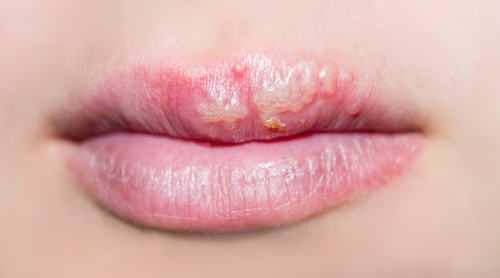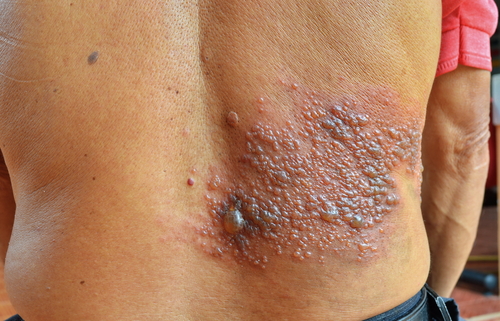 How does Dr. Rueckl diagnose herpes simplex?
How does Dr. Rueckl diagnose herpes simplex?
During an outbreak, he often can diagnose herpes simplex by looking at the sores. To confirm that a patient has herpes simplex, Dr. Rueckl may take a swab from a sore and send this swab to a laboratory. When sores are not present, other medical tests, such as blood tests, can find the herpes simplex virus.
How does Dr. Rueckl treat herpes simplex?
There is no cure for herpes simplex. The good news is that sores often clear without treatment. Many people choose to treat herpes simplex because treatment can relieve symptoms and shorten an outbreak. Most people are treated with an antiviral medicine. An antiviral cream or ointment can relieve the burning, itching, or tingling. An antiviral medicine that is oral (pills) or intravenous (shot) can shorten an outbreak of herpes. Prescription antiviral medicines approved for the treatment of both types of herpes simplex include:
• Acyclovir
• Famciclovir
• Valacyclovir
Taken daily, these medicines can lessen the severity and frequency of outbreaks. They also can help prevent infected people from spreading the virus.
Outcome
The first (primary) outbreak of herpes simplex is often the worst. Not all first outbreaks are severe, though. Some are so mild that a person does not notice. When the first outbreak of genital herpes is mild and another outbreak happens years later, the person can mistake it for a first outbreak. Some people have 1 outbreak. For others, the virus becomes active again. When they have another outbreak, it is called a recurrence. These tend to be more common during the first year of infection. Over time, the outbreaks tend to become less frequent and milder. This is because the body makes antibodies (defenses) to the virus. Serious complications rarely occur in healthy people with herpes simplex. They occur most often in unborn babies, newborns, and people who have a long-term illness or weak immune system. If you have cancer or HIV/AIDS, or you had an organ transplant, seek medical help right away if you have signs or symptoms of a herpes infection.
Herpes Zoster (Shingles)
Shingles is a disease caused by the varicella-zoster virus – the same virus that causeschickenpox. After you have chickenpox, the virus stays in your body. It may not cause problems for many years. As you get older, the  virus may reappear as shingles. Although it is most common in people over age 50, anyone who has had chickenpox is at risk. You can’t catch shingles from someone who has it. However, if you have a shingles rash, you can pass the virus to someone who has never had chickenpox. This would usually be a child, who could get chickenpox instead of shingles. The virus spreads through direct contact with the rash, and cannot spread through the air. Early signs of shingles include burning or shooting pain and tingling or itching, usually on one side of the body or face. The pain can be mild to severe. Rashes or blisters appear anywhere from one to 14 days later. If shingles appears on your face, it may affect your vision or hearing. The pain of shingles may last for weeks, months, or even years after the blisters have healed. There is no cure for shingles. Early treatment with medicines that fight the virus may help. These medicines may also help prevent lingering pain. A vaccine may prevent shingles or lessen its effects. The vaccine is recommended for people 60 or over. In some cases doctors may give it to people ages 50 to 59.
virus may reappear as shingles. Although it is most common in people over age 50, anyone who has had chickenpox is at risk. You can’t catch shingles from someone who has it. However, if you have a shingles rash, you can pass the virus to someone who has never had chickenpox. This would usually be a child, who could get chickenpox instead of shingles. The virus spreads through direct contact with the rash, and cannot spread through the air. Early signs of shingles include burning or shooting pain and tingling or itching, usually on one side of the body or face. The pain can be mild to severe. Rashes or blisters appear anywhere from one to 14 days later. If shingles appears on your face, it may affect your vision or hearing. The pain of shingles may last for weeks, months, or even years after the blisters have healed. There is no cure for shingles. Early treatment with medicines that fight the virus may help. These medicines may also help prevent lingering pain. A vaccine may prevent shingles or lessen its effects. The vaccine is recommended for people 60 or over. In some cases doctors may give it to people ages 50 to 59.
Source: NIH: National Institute of Allergy and Infectious Diseases





